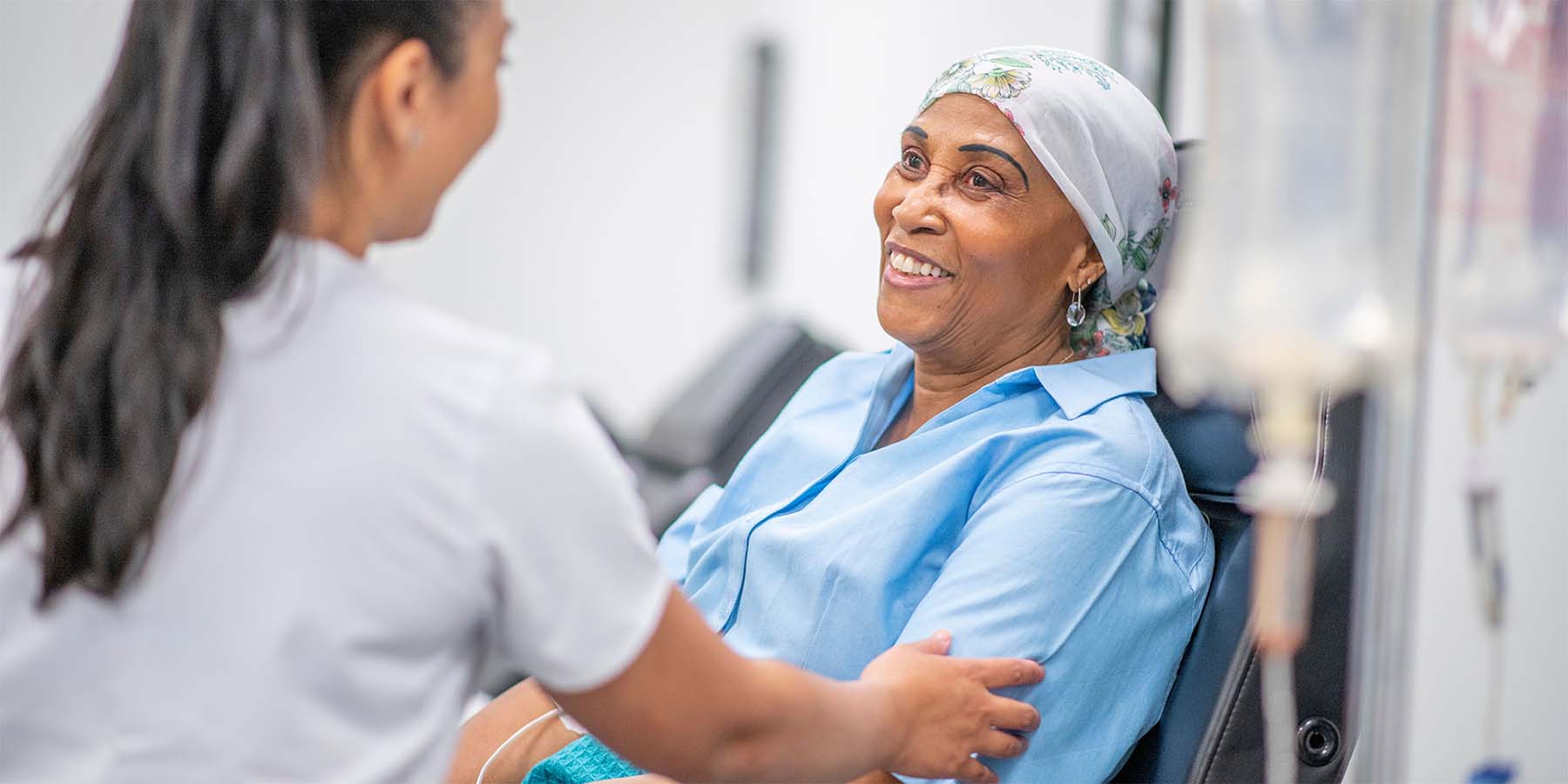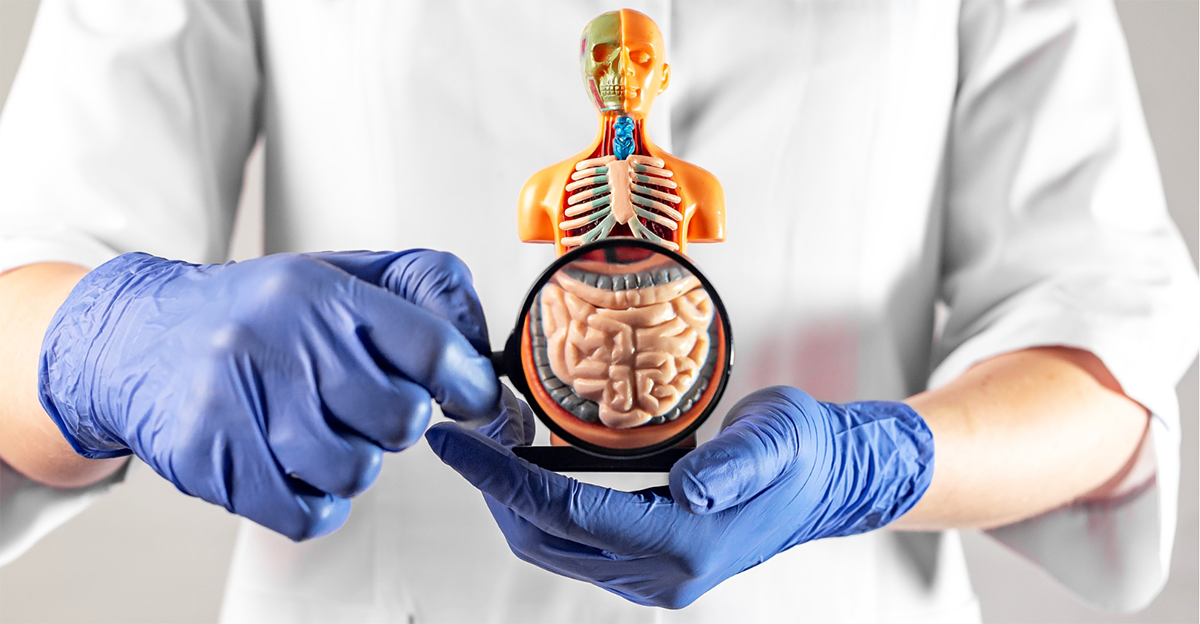Dr. Patrycja Skut: Cell-Free RNA for Newborn Immunity Against Infectious Disease
You have probably heard it on many occasions before: it’s not the destination, but the journey that counts. For researcher Dr. Partycja Skut, the scientific journey is no different and is one that she embraces with wholehearted enthusiasm. Her journey began with bacteria and single-celled organisms and led to the dynamic complexities of immunology.
An Interview with Dr.Patrycja Skut
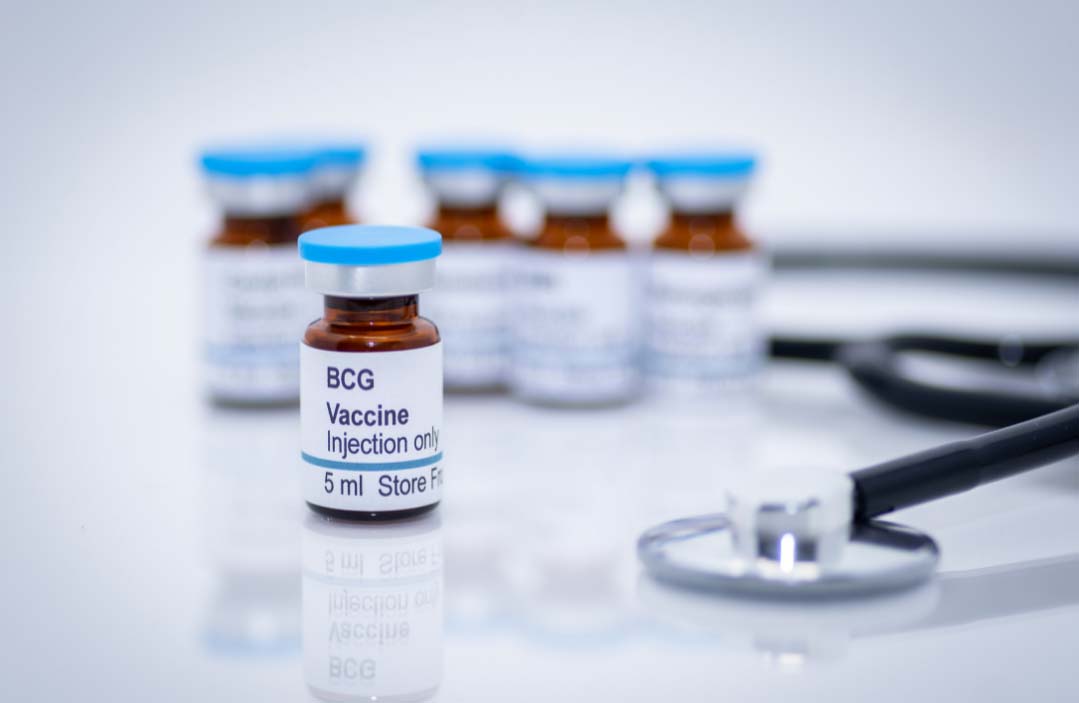 Dr. Patrycja Skut began her studies in the field of biotechnology and microbiology in Poland.
She later moved to Australia and changed her focus from bacteria to the impact immunity has on one’s health and well-being.
At the beginning of the COVID-19 pandemic, she became involved with the BRACE study - the world’s largest trial investigating the off-target effects of the Bacille Calmette-Guérin (BCG) vaccine.
The study hypothesized that the BCG (Bacillus Calmette-Guérin) vaccine, which is routinely used to protect against tuberculosis (TB),
may protect against COVID-19 by reducing the number of cases as well as the severity of the illness.
Dr. Patrycja Skut began her studies in the field of biotechnology and microbiology in Poland.
She later moved to Australia and changed her focus from bacteria to the impact immunity has on one’s health and well-being.
At the beginning of the COVID-19 pandemic, she became involved with the BRACE study - the world’s largest trial investigating the off-target effects of the Bacille Calmette-Guérin (BCG) vaccine.
The study hypothesized that the BCG (Bacillus Calmette-Guérin) vaccine, which is routinely used to protect against tuberculosis (TB),
may protect against COVID-19 by reducing the number of cases as well as the severity of the illness.
Shortly after, she joined the Systems Vaccinology Team at Telethon Kids Institute in Perth, Western Australia. In connection with the Human Vaccine Project, Telethon Kids Institute is Australia’s only pediatric hub that focuses on identifying beneficial interventions for babies and their mothers.
The Health and Well-being of Newborns
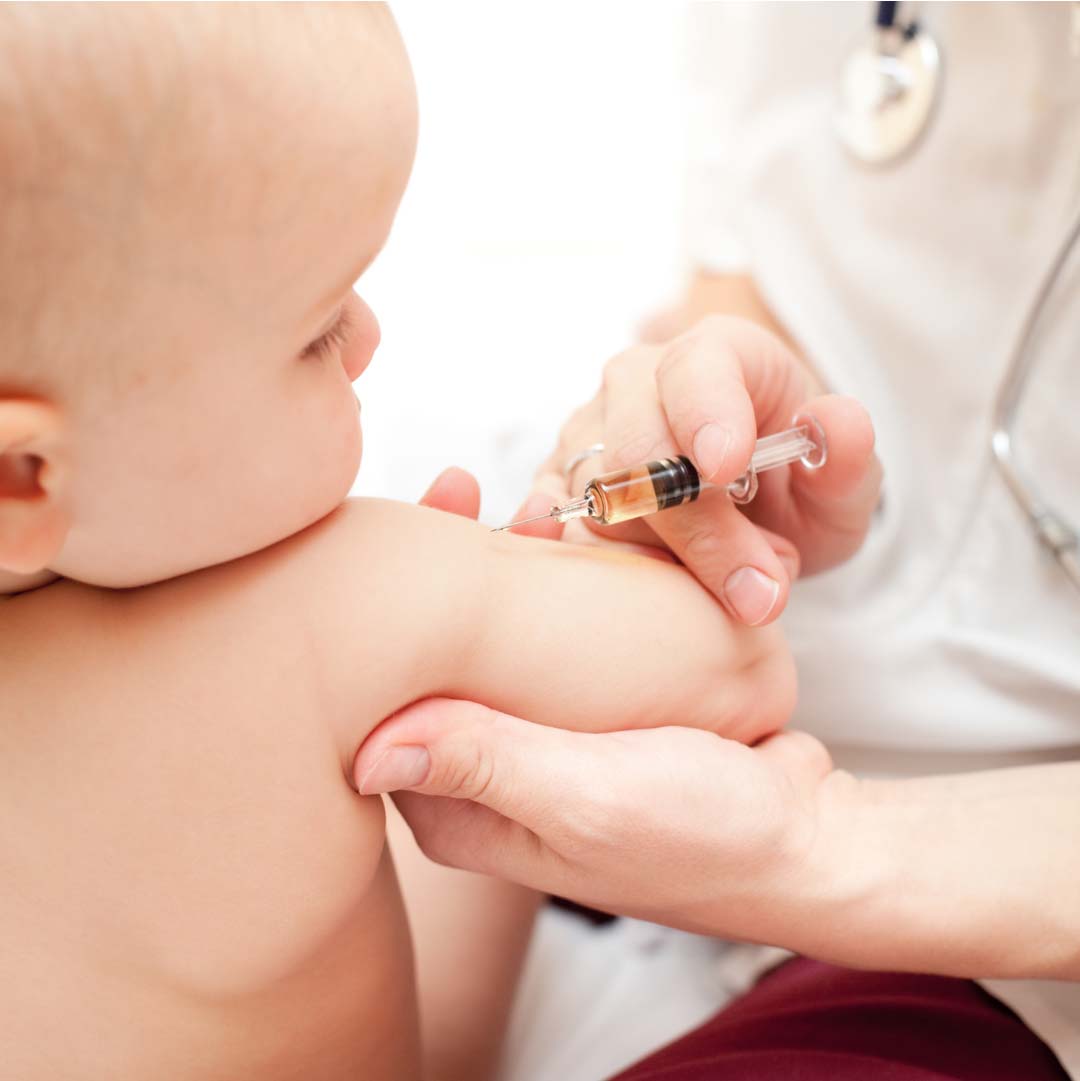 The Systems Vaccinology Team, led by Dr. Tobias Kollmann, Ph.D., M.D.,
who has over 20 years of experience in vaccine research,
was originally based in Canada at the University of British Columbia and moved to Australia in 2019.
The team is focused on the core questions related to immunity’s impact on health and well-being with a specific interest in newborn vulnerability to infectious diseases,
as well as understanding the molecular mechanisms underlying the immune response.
The ultimate goal is to implement life-saving interventions for these newborns within the first few days of life or even before.
One of the leading avenues to achieve this is newborn BCG vaccination, which not only protects from TB but from other bacterial infections.
This protection, at least in part relates to a rapid shift in hematopoiesis towards myelopoiesis and with that upregulation of neutrophil production in the bone marrow.
The process induced by BCG is called emergency granulopoiesis. How this works, remains a mystery.
The Systems Vaccinology Team, led by Dr. Tobias Kollmann, Ph.D., M.D.,
who has over 20 years of experience in vaccine research,
was originally based in Canada at the University of British Columbia and moved to Australia in 2019.
The team is focused on the core questions related to immunity’s impact on health and well-being with a specific interest in newborn vulnerability to infectious diseases,
as well as understanding the molecular mechanisms underlying the immune response.
The ultimate goal is to implement life-saving interventions for these newborns within the first few days of life or even before.
One of the leading avenues to achieve this is newborn BCG vaccination, which not only protects from TB but from other bacterial infections.
This protection, at least in part relates to a rapid shift in hematopoiesis towards myelopoiesis and with that upregulation of neutrophil production in the bone marrow.
The process induced by BCG is called emergency granulopoiesis. How this works, remains a mystery.
The Precision Health Accelerator
 Dr. Skut works alongside Dr. Rym Ben Othman as well as Dr. Kollmann, who also serves as the Director at The Precision Health Accelerator,
a cutting-edge research platform, which was initiated to facilitate access to systems biology by providing researchers with tools to accelerate their research.
The way The Accelerator works is by providing high-quality services to researchers to enable multi-omics analyses in understanding the complexity of biological processes.
Simply put, the goal is to maximize the amount of data and information retrieved from a single biological sample and integrate it in a way to accelerate progress in research.
Since the traditional tissue biopsy is not feasible for longitudinal studies,
one of the team’s main focuses is the generation of a robust pipeline for cell-free RNA from liquid biopsy samples which are a perfect surrogate for invasive tissue biopsies.
Dr. Skut’s interest in cell-free RNA is what brought her to Norgen Biotek after she discovered that Norgen’s uniquely patented silicon carbide technology allows for superior
capture of cell-free RNAs, specifically miRNAs.
Dr. Skut works alongside Dr. Rym Ben Othman as well as Dr. Kollmann, who also serves as the Director at The Precision Health Accelerator,
a cutting-edge research platform, which was initiated to facilitate access to systems biology by providing researchers with tools to accelerate their research.
The way The Accelerator works is by providing high-quality services to researchers to enable multi-omics analyses in understanding the complexity of biological processes.
Simply put, the goal is to maximize the amount of data and information retrieved from a single biological sample and integrate it in a way to accelerate progress in research.
Since the traditional tissue biopsy is not feasible for longitudinal studies,
one of the team’s main focuses is the generation of a robust pipeline for cell-free RNA from liquid biopsy samples which are a perfect surrogate for invasive tissue biopsies.
Dr. Skut’s interest in cell-free RNA is what brought her to Norgen Biotek after she discovered that Norgen’s uniquely patented silicon carbide technology allows for superior
capture of cell-free RNAs, specifically miRNAs.
“I was captivated by the silicon carbide technology and the biophysics of the purification kits. I’m very impressed by how researchers from Norgen have tackled this problem [of capturing true RNA diversity with silicon carbide].”- Dr. Patrycja Skut
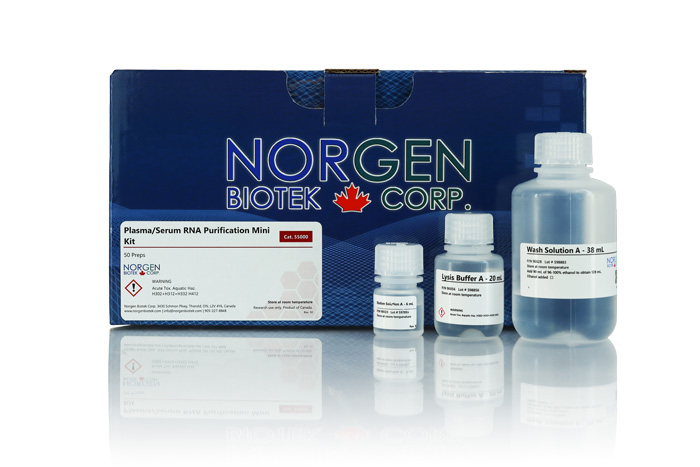
Cell-Free RNA Analysis from Liquid Biopsies
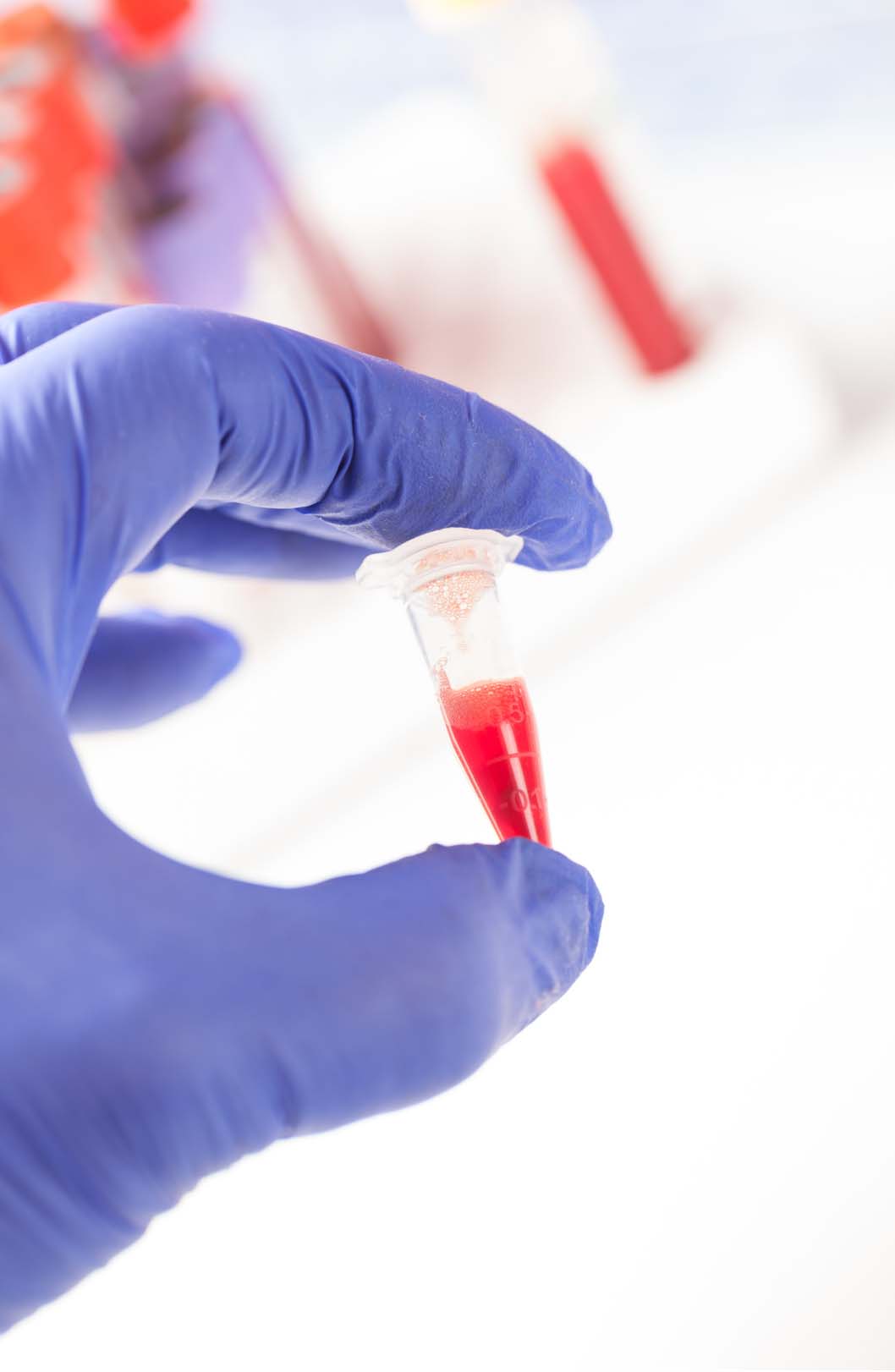 One of the ways in which Dr. Kollmann’s team is working to uncover novel biomarkers is by analyzing cell-free RNA as a ‘liquid bone marrow biopsy’
of participants that have received the BCG vaccine. With newborns, a bone marrow biopsy for research purposes is not feasible and so Dr. Skut hopes that ‘liquid bone marrow biopsies’
(i.e. cell-free RNA) will shed some light on understanding the mechanism of protection of the vaccine. Dr. Skut’s work is even more challenging as blood
(that includes the cell-free RNA in the plasma) can only be collected from infants in ultra-low volumes.
One of the ways in which Dr. Kollmann’s team is working to uncover novel biomarkers is by analyzing cell-free RNA as a ‘liquid bone marrow biopsy’
of participants that have received the BCG vaccine. With newborns, a bone marrow biopsy for research purposes is not feasible and so Dr. Skut hopes that ‘liquid bone marrow biopsies’
(i.e. cell-free RNA) will shed some light on understanding the mechanism of protection of the vaccine. Dr. Skut’s work is even more challenging as blood
(that includes the cell-free RNA in the plasma) can only be collected from infants in ultra-low volumes.
“We want to create pipelines with Norgen which are robust, reproducible and reliable. Especially with the small inputs, that’s why we are really interested in Norgen’s cell-free RNA preservative (Cat. 63950) for plasma/serum from infant samples - since you cannot collect more than 200 μL of blood.”
NORBLOG
Want to hear more from Norgen?
Join over 10,000 scientists, bioinformaticians, and researchers who receive our exclusive deals, industry updates, and more, directly to their inbox.
For a limited time, subscribe and SAVE 10% on your next purchase!
SIGN UP
“The necessity for a reliable preservative is crucial when working with infants. When working with volumes of around 200 μL, these become precious samples and we are looking to extract as much information as possible.” - Dr. Patrycja Skut
Future Implications of Cell-Free RNA Research
For the discovery of novel biomarkers from ultra-low input samples, RNA-Seq was the solution. Dr. Skut has begun this journey by comparing in a pilot study of cell-free RNA from serum samples to the bone marrow biopsies of healthy adult participants pre and post BCG immunization using Norgen’s RNA-Seq service.
“Norgen’s experience in RNA-Sequencing is quite rare, and I can see as well that your bioinformatics approach is excellent and that’s the whole package.”- Dr. Patrycja Skut
While the team’s projects are still in the early stages of discovery, the future implications for their work are significant. The team’s upcoming work aims to answer specific biological questions surrounding the hematopoietic system’s response to BCG vaccinations by capturing and analyzing the full RNA profile of the liquid biopsy samples – everything from microRNA (miRNA), long non-coding RNA (lncRNA) to coding messenger RNA (mRNA). The ultimate goal for Dr. Skut is to optimize research processes for cell-free RNA and to conduct reproducible research of the highest quality, in a standardized way.
We asked Dr. Skut what advice she would offer to an aspiring new graduate or new researcher in the field.
“It’s such a great time to be a researcher nowadays as advances in biological science and acceleration of computing, automation, and artificial intelligence development are at an all-time high.
The education methods are evolving to digital over time, enabling information to be easily accessible from any place in the world.
The amount of free, reliable information is unprecedented – especially in the COVID era when we have access to web-based conferences, seminars and workshops.
I think it’s undervalued, and this opportunity is crucial. I would strongly suggest to new graduates to make the most of it in looking for answers in the field which they are passionate about.
I can’t stress enough how important it is to learn how to apply a cross-disciplinary approach to biological complexity and bioinformatics at an early stage”. - Dr. Patrycja Skut
We asked Dr. Skut what her greatest scientific achievement is.
“I am most proud of my involvement in the research of Dr. Laurence Cheung, whose work focuses on leukemia in children, a subtype of ALL known as pre-B ALL.
The biggest achievement was identifying a signal produced by the leukemia cells which instructed cells in the microenvironment – the bone-eating cell- known as osteoclasts.
This gives the opportunity to discover a class of the drugs not only preventing bone density but as well having the potential to slow leukemia progression”. - Dr. Patrycja Skut
As Albert Szent-Györgyi once said, “Research is to see what everybody else has seen and to think what nobody else has thought.”
Thank you Dr. Skut for sitting down with the Norgen team to discuss your important research!


